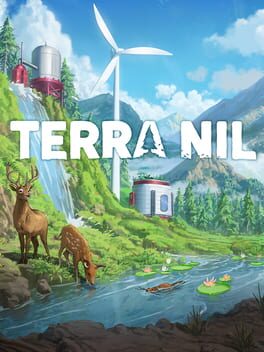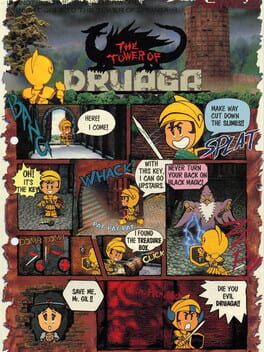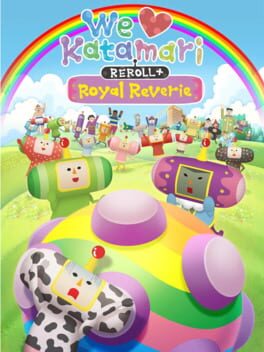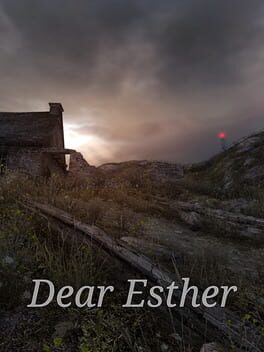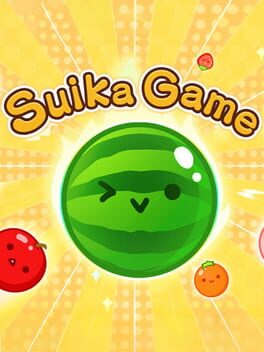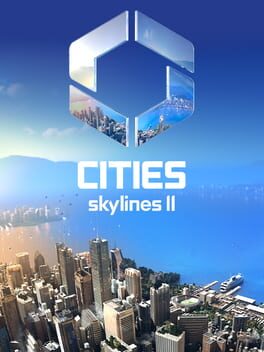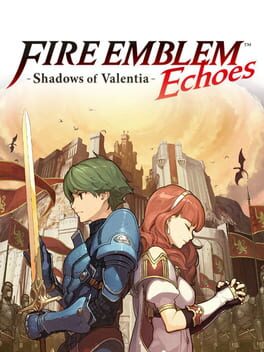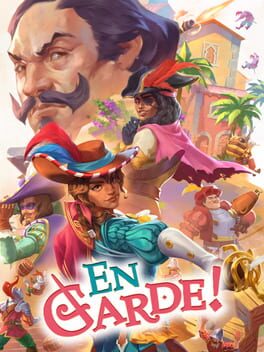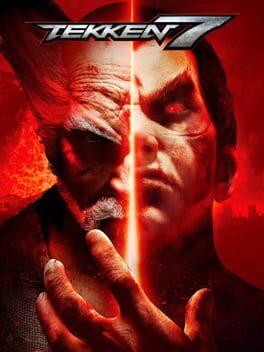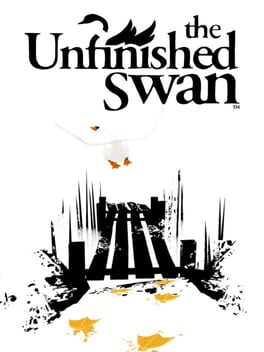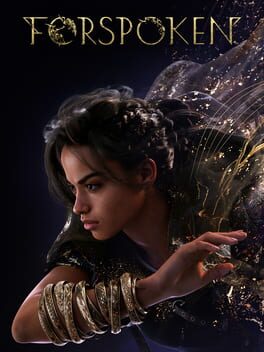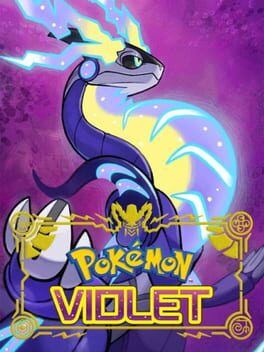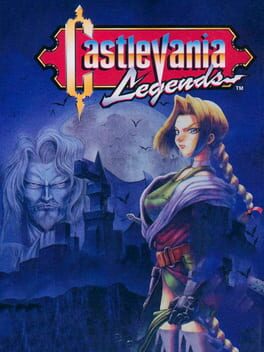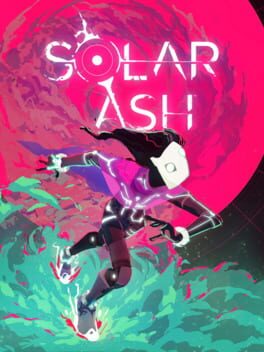tradegood
2023
I have tried a few different City Builders themed around ecosystems before and they never quite do it for me, and this one also missed the mark for me. It is designed in a way that you’re always kind of fighting with yourself for how you allocate resources, where new upgrades are constantly unlocked so it kind of requires you to constantly erase what you’ve made in order to build something new on top of it. I don’t mind that loop coming hours into a game, but this happens in the first 10 minutes. Everything is limited by a small map size, forcing you to build ‘tall’ very quickly. The game is a little puzzle box constantly folding over itself. Not the worst game design but it’s not what I seek in a city builder. I get that it’s trying to make a political statement about the finite nature of the planet or whatever, but the systems would benefit by giving you a bigger plot of land to work with.
The resource constraints also put you under pressure to make decisions quite slowly and not at scale. Like instead of placing 5 windmills before placing the plant dispensers, the game really wants you to set up one windmill at a time and dispensers then move on to the second one, etc. If I’m geo-engineering, want to plan ahead so I can minmax the area of effectiveness. Instead you’re going to be inefficient by design and buildings can’t be deleted, only ‘recycled’ for other purposes. The idea is cute but I’m not a big fan.
The resource constraints also put you under pressure to make decisions quite slowly and not at scale. Like instead of placing 5 windmills before placing the plant dispensers, the game really wants you to set up one windmill at a time and dispensers then move on to the second one, etc. If I’m geo-engineering, want to plan ahead so I can minmax the area of effectiveness. Instead you’re going to be inefficient by design and buildings can’t be deleted, only ‘recycled’ for other purposes. The idea is cute but I’m not a big fan.
1984
It's deeply unfair and hard to read, but I kind of love it anyway. There are so many missable items that this game demands that you create your own strategy guide. I missed the candle and then loaded into an all-black area, and had no choice but to just restart. But it's not just the big upgrades, you have to read your enemies the second you load into a level or they can kill you very easily. I played this using judicious use of save states but still ran into many unwinnable situations. You need to meet the game at its level, but if you do you can have a good time with it.
This is a brutal game, but still pretty fun. It earned its role as the granddaddy of RPGs, but do not go into this game unprepared for it to be as punishing as it is.
This is a brutal game, but still pretty fun. It earned its role as the granddaddy of RPGs, but do not go into this game unprepared for it to be as punishing as it is.
2012
The landscapes are the star of the show. The stunning environments slowly unravel and become more and more interesting as you navigate through the game. The game's symbolism is littered all over the island with breadcrumbs for the player who takes the time to stop and zoom in. The island itself changes meaning throughout the game, but the abstract nature of the story leads to many of the clues you discover becoming a dead end in a way that I'm conflicted about. As background ambiance the story didn't need much scrutiny early on, but as it becomes more prominent it also becomes more heavy handed, and it's easier to fixate on the flaws in the writing. I do not like the story or necessarily how it was told, which is unfortunate because you can tell it benefits from multiple playthroughs, but I have no desire to go back and fill in the gaps that I missed.
The game makes great use out of limiting the player to just walking, listening, and looking in order to create the atmosphere of helplessness and lack of control. The game teases the player with exploration but is actually quite linear, and unfortunately there were a couple of chapters I circled back to the beginning without really understanding where to go next. But you can't get too mad at a game that tried something and took some chances and did something very new and refreshing at the time.
The game makes great use out of limiting the player to just walking, listening, and looking in order to create the atmosphere of helplessness and lack of control. The game teases the player with exploration but is actually quite linear, and unfortunately there were a couple of chapters I circled back to the beginning without really understanding where to go next. But you can't get too mad at a game that tried something and took some chances and did something very new and refreshing at the time.
2021
Brilliant, addictive, challenging, and with just enough physics jank to make it really impossible to predict or plan ahead too much. Very easy to get into a flow state and gives the illusion that I'm mastering the game more every time I step away and return, whether it's by better estimating the physics or knowing better placements and strategy. The reality is, my scores don't seem to be impacted by skill. It's baffling in that way, and easy to fall into a 'just one more game' mindset.
update: do NOT drink orange juice and play this before bed unless you watch tetris effect dreams.
update: do NOT drink orange juice and play this before bed unless you watch tetris effect dreams.
2023
I went in expecting the worst when it came to the game's performance, but I think I am more underwhelmed by the game's sim aspects. The performance is bad even with a decent PC, and the hitching feels worst. I empathize with Colossal Order, I think they ultimately got carried away trying to render too much geometry and likely had to release the game early and unoptimized due to contracts with Gamepass or Paradox getting impatient and wanting to start their DLC sales cycle as soon as possible. I think the game will always have this cloud looming over them even if a year from now the game will be running fine for most people.
Instead what I think is really troubling is how shallow a lot of the simulation feels after putting some time into it. Obviously Cities 1 had 8 years of patches, expansions, mods, etc. and this game is starting from scratch, but I feel like I've seen what the game has to offer much sooner than I expected. A lot of the improvements seem like they were done under the hood, and aside from a few quality of life improvements, this is highly similar to Cities 1, and there's no way around it. They could have gone further in any direction... making it more simulatory, more arcadey, something... but it's largely the same game.
Ultimately, the game is fine, and it will be a good base for CO to continue to develop on for the rest of the decade, but it does not make the best first impression. They traded in some old problems for some new ones, let's hope these are easier to fix.
Instead what I think is really troubling is how shallow a lot of the simulation feels after putting some time into it. Obviously Cities 1 had 8 years of patches, expansions, mods, etc. and this game is starting from scratch, but I feel like I've seen what the game has to offer much sooner than I expected. A lot of the improvements seem like they were done under the hood, and aside from a few quality of life improvements, this is highly similar to Cities 1, and there's no way around it. They could have gone further in any direction... making it more simulatory, more arcadey, something... but it's largely the same game.
Ultimately, the game is fine, and it will be a good base for CO to continue to develop on for the rest of the decade, but it does not make the best first impression. They traded in some old problems for some new ones, let's hope these are easier to fix.
I originally played the first two acts of Echoes years ago but found it was a little slow paced. Particularly going from the end of Act 1 to starting completely fresh with tutorial maps in Act 2 kind of killed momentum for me. It wasn't until my amazing experience with Fire Emblem Gaiden that I decided to give the remake a second chance, and I'm glad I did.
Shadows of Valentia is a very faithful remake, almost to a fault, which manages to expand on the characters and story in a very strong direction. The presentation of the game is stellar, with outstanding music, artwork, voice acting, prose, and new 3D dungeons which manage to feel right at home in the game.
However, such a faithful remake also made many of the flaws of the original much more apparent. The pacing of the original, while also very slow, was accelerated by having less story beats, dungeon encounters, time taken for deployments, etc. It could be just from playing the games back to back, but SoV felt like a much longer game. Granted I played the DLC and extra maps, which added some time to an already long game, but it did feel like the pacing for this game was a little worse than Gaiden on 3x speed.
On the topic of new characters it had its ups and downs. Cleric Faye was a powerhouse and I thought she was a positive addition to make it feel like less of a boy's club. , I did not like the introduction of Conrad. I think he kind of ruined some of Celica's character development by telling her the act 3 twist, rather than her figuring it out herself. Fernand was a bit of a cartoonish villain for my liking, but I really enjoyed Berkut's final turn at the end. I thought his character had pretty believable motivation for doing what he did, and they handled it well. In terms of the DLC, I thought the new characters were interesting but they never really felt part of the team. I challenged myself to use Emma and Randal through chapters 4 and 5, but it came at the expense of appreciating Zeke/Titania who join late and have a much better story.
Story-wise, I think some of the twists, namely Alm's background and King Rudolf's motivations do seem a little more out of place than they did in FE2. I would have liked to have seen them change it up a bit more than they did, at least to make Rudolf's actions make a little more sense.
I beat the game on hard, and while I was happy to revisit the maps, I think they could have gone further revamping them. I don't think FE2 is particularly well known for its map design, and some of the uninspired choices made it over. The simple weapon system worked fine, and the consumables were a nice addition. The growths in this game were not as abysmal as Gaiden but still the growths are much lower and it always felt like it killed momentum when a character you like leveled up twice and only gained 2 points to a stat like Skill. I played around with reclassing a bit, but it felt a little like a dry run for Three Houses. Having everyone on the battlefield is nice and some of the endgame maps felt appropriately big. It is unfortunate there's no maddening, especially one with no grinding possibilities, but c'est la vie.
Overall, I feel great about the game, but I think I still prefer Gaiden as crazy as that sounds. Something about the minimalism was lost in translation, but this is still an excellent game that feels like a real mix of old and new Fire Emblem.
Shadows of Valentia is a very faithful remake, almost to a fault, which manages to expand on the characters and story in a very strong direction. The presentation of the game is stellar, with outstanding music, artwork, voice acting, prose, and new 3D dungeons which manage to feel right at home in the game.
However, such a faithful remake also made many of the flaws of the original much more apparent. The pacing of the original, while also very slow, was accelerated by having less story beats, dungeon encounters, time taken for deployments, etc. It could be just from playing the games back to back, but SoV felt like a much longer game. Granted I played the DLC and extra maps, which added some time to an already long game, but it did feel like the pacing for this game was a little worse than Gaiden on 3x speed.
On the topic of new characters it had its ups and downs. Cleric Faye was a powerhouse and I thought she was a positive addition to make it feel like less of a boy's club. , I did not like the introduction of Conrad. I think he kind of ruined some of Celica's character development by telling her the act 3 twist, rather than her figuring it out herself. Fernand was a bit of a cartoonish villain for my liking, but I really enjoyed Berkut's final turn at the end. I thought his character had pretty believable motivation for doing what he did, and they handled it well. In terms of the DLC, I thought the new characters were interesting but they never really felt part of the team. I challenged myself to use Emma and Randal through chapters 4 and 5, but it came at the expense of appreciating Zeke/Titania who join late and have a much better story.
Story-wise, I think some of the twists, namely Alm's background and King Rudolf's motivations do seem a little more out of place than they did in FE2. I would have liked to have seen them change it up a bit more than they did, at least to make Rudolf's actions make a little more sense.
I beat the game on hard, and while I was happy to revisit the maps, I think they could have gone further revamping them. I don't think FE2 is particularly well known for its map design, and some of the uninspired choices made it over. The simple weapon system worked fine, and the consumables were a nice addition. The growths in this game were not as abysmal as Gaiden but still the growths are much lower and it always felt like it killed momentum when a character you like leveled up twice and only gained 2 points to a stat like Skill. I played around with reclassing a bit, but it felt a little like a dry run for Three Houses. Having everyone on the battlefield is nice and some of the endgame maps felt appropriately big. It is unfortunate there's no maddening, especially one with no grinding possibilities, but c'est la vie.
Overall, I feel great about the game, but I think I still prefer Gaiden as crazy as that sounds. Something about the minimalism was lost in translation, but this is still an excellent game that feels like a real mix of old and new Fire Emblem.
2023
En Garde is swashbuckling fun, and even though the game doesn't evolve beyond the first impression, it still shows that you don't need to be mechanically complex or focus on variety to make a worthwhile experience. At about 4 hours long, the game hit a sweet spot of offering a substantial experience without getting in its own way (though some of the late-game challenges were a little more demanding than they needed to be).
The pulpy latin adventure flavor and sense of humor, makes this game stand out in a great way, and the sharp presentation made a lot of the game's weaknesses more forgiving. Even if there were only 5-6 enemies repeated, the fun came from dropping chandeliers, throwing buckets on people's heads, tossing a lantern onto a stack of gunpowder, etc. While the corridors didn't do much to distinguish themselves, I did find myself enjoying the platforming and moving through the space. I think the game shines with how it handles crowd control, battling 4-5 enemies at the same time with someone in the back throwing bombs is hectic fun. My biggest gripe is that the boss battles turned into kind of tedious chases once all the destructable elements were used, and the game really requires you to nail the parry mechanics, which is not as fun as laying traps for your enemies. Still this is some of the most fun action swordfighting I've experienced in a game, which forgives a lot of the game's rougher edges.
The pulpy latin adventure flavor and sense of humor, makes this game stand out in a great way, and the sharp presentation made a lot of the game's weaknesses more forgiving. Even if there were only 5-6 enemies repeated, the fun came from dropping chandeliers, throwing buckets on people's heads, tossing a lantern onto a stack of gunpowder, etc. While the corridors didn't do much to distinguish themselves, I did find myself enjoying the platforming and moving through the space. I think the game shines with how it handles crowd control, battling 4-5 enemies at the same time with someone in the back throwing bombs is hectic fun. My biggest gripe is that the boss battles turned into kind of tedious chases once all the destructable elements were used, and the game really requires you to nail the parry mechanics, which is not as fun as laying traps for your enemies. Still this is some of the most fun action swordfighting I've experienced in a game, which forgives a lot of the game's rougher edges.
2015
As a casual player looking for some silly fun with a friend, Tekken 7 hits the mark. It's accessible and action-packed, with highlights being the arcade bowling and the inclusion of Prince Noctis and the wide roster with joke characters with unique but approachable movesets. The story mode and competitive play isn't really what I came to this game for, but there's definitely a lot of good challenge to be had. Not my favorite fighter but a total crowd-pleaser.
2014
This game is so inviting with its chirpy music, soft colors, and simple shapes. The way it slowly ramps up the difficulty into a twitchy, precise shooter is fantastic. The high score speedrun/arcade style gameplay works well because there is a purity and simplicity to the game's mechanics. The speed feels right, the jump feels right, hitting enemy shots with your own shot feels satisfying. This is a great game to pick up for 15-odd minutes here and there to chip away at difficult challenges.
2012
In 2024, this game does not have the same impact that it might have during 2012, when there was really nothing quite like on the PS3. Over the last decade, it's no longer a novelty to play with the conventions of video games, color, 3D geometry, etc... and yet this game still feels unique with much of its approach. I finished this game with mixed feelings, because while it is very imaginative and had a lot of clever ideas (including a particularly strong ending), it doesn't feel cohesive. The pacing spends too long with some ideas and fails to really explore some others.
The game opens in a white maze, and as you toss ink you eventually start creating the outlines of a world, which can look striking at different angles. Your sense of place is a mystery so you want to solve that mystery. However, there is not a mystery to be solved. The story is literal and straightforward and the area you walk around in does not really contain much of interest. The collectable balloons are nice but are contextually weird. The areas don't encourage exploration, in fact I think the idea of the first area is to be a bit aimless.
The next area is the longest of the game, and you can see everything laid out in front of you. The puzzles are not really there to challenge you, and after a while it started feeling tedious to me to follow the prescribed path around the zone. There are flashes of things being interesting, such as when you first get access to the weeds, but the third area is where things really fell off for me. They went in another new direction by having a dark area and turned into a survival game. It was not really what I expected or wanted out of this particular game. Then in the final part of the level unlock the new mechanic, to create platforms. It felt exciting until you discover that you're basically just building the same staircases everywhere and it's all over soon.
The final chapter surprised me with how suddenly everything ended, but I do think they made some good creative choices in telling the story from the King's perspective. It's just a shame that I was not invested in the story at all by that point. It's written as a children's story, and so there's not a lot to grasp onto there.
I want to make a pun about this game feeling unfinished or sloppy/messy like the ink blots of this game, but I do respect it more than that. Overall, I'm glad I played this, and maybe I'll enjoy it more on a future playthrough but the execution left a bit to be desired.
The game opens in a white maze, and as you toss ink you eventually start creating the outlines of a world, which can look striking at different angles. Your sense of place is a mystery so you want to solve that mystery. However, there is not a mystery to be solved. The story is literal and straightforward and the area you walk around in does not really contain much of interest. The collectable balloons are nice but are contextually weird. The areas don't encourage exploration, in fact I think the idea of the first area is to be a bit aimless.
The next area is the longest of the game, and you can see everything laid out in front of you. The puzzles are not really there to challenge you, and after a while it started feeling tedious to me to follow the prescribed path around the zone. There are flashes of things being interesting, such as when you first get access to the weeds, but the third area is where things really fell off for me. They went in another new direction by having a dark area and turned into a survival game. It was not really what I expected or wanted out of this particular game. Then in the final part of the level unlock the new mechanic, to create platforms. It felt exciting until you discover that you're basically just building the same staircases everywhere and it's all over soon.
The final chapter surprised me with how suddenly everything ended, but I do think they made some good creative choices in telling the story from the King's perspective. It's just a shame that I was not invested in the story at all by that point. It's written as a children's story, and so there's not a lot to grasp onto there.
I want to make a pun about this game feeling unfinished or sloppy/messy like the ink blots of this game, but I do respect it more than that. Overall, I'm glad I played this, and maybe I'll enjoy it more on a future playthrough but the execution left a bit to be desired.
2023
Forspoken is an outstanding game filled with so many good ideas and imagination. It has unique and addictive gameplay that feels intrinsically rewarding. Once you adapt to the game's control scheme, moving through space feels better than second nature, and the wonderfully crafted parkouring animations always feel exciting to pull off. The mix of combat styles adds depth and variety to even easy battles. The open world is gigantic, beautifully rendered, and designed around the game's traversal mechanics. The way that enemies spawn and you the world seamlessly funnels you into different side objectives on the map is well integrated and makes each session with this game feel like you're making great progress.
Of course, the fatal flaw that turned millions off of this game is the tonal mismatch between wisecracking Frey & Cuff and the rather dour, serious dark fantasy world that they inhabit. It is so distracting that it cursed this game to be a flop. This game asks you to get invested in two worlds, the one with the concept, lore, and worldbuilding which feels very well considered. The there's the characters and isekai element that never feels natural, and the banter and lack of compelling character motives is grating. The player is not going to buy into both things because they are so disparate, and you get a constant reminder that your experience is compromised. They were terrified of having too dark of a story so they pulled back. They were terrified of making it too much of a comedy that people wouldn't take this world too seriously so they put some edge on it. The push and pull just doesn't feel artistically consistent and it's distracting.
The narrative also has its ups and its downs. I think that the initial hook of the game is not that strong, and the plot twists a little bit trite, leading to the ultimate twist that was both obvious and so abrupt that I can't really recommend the story on its own merits, or disaggregate it from the dialogue and characters.
But, I don't think these faults really define the game. This game deserves so much more love and appreciation. You can enjoy the scope and ambition that went into this game, and the fresh ideas they came up with. The character designs and landscape is beautiful and filled with nice touches. It's very well considered and we are at a loss that Luminous Productions dissolved after this game, because they had a lot of ideas and skill that wasn't necessarily directed the best way.
At some point, Square Enix knew they had to push this game out the door, so some elements do feel unfinished. You do have this big open world with a lot of procedural content, but without a lot of the personalization that you would want from doing sidequests or running errands for characters. From the middle of the game, it will suddenly rush you to the ending, dumping a lot of levels and new skills on you as the exposition slightly overstays its welcome. The postgame opens up the world even more, but I was not compelled to keep playing. I am comfortable to close the book on Athia, and will always appreciate it as the truly unique experience that it is.
Of course, the fatal flaw that turned millions off of this game is the tonal mismatch between wisecracking Frey & Cuff and the rather dour, serious dark fantasy world that they inhabit. It is so distracting that it cursed this game to be a flop. This game asks you to get invested in two worlds, the one with the concept, lore, and worldbuilding which feels very well considered. The there's the characters and isekai element that never feels natural, and the banter and lack of compelling character motives is grating. The player is not going to buy into both things because they are so disparate, and you get a constant reminder that your experience is compromised. They were terrified of having too dark of a story so they pulled back. They were terrified of making it too much of a comedy that people wouldn't take this world too seriously so they put some edge on it. The push and pull just doesn't feel artistically consistent and it's distracting.
The narrative also has its ups and its downs. I think that the initial hook of the game is not that strong, and the plot twists a little bit trite, leading to the ultimate twist that was both obvious and so abrupt that I can't really recommend the story on its own merits, or disaggregate it from the dialogue and characters.
But, I don't think these faults really define the game. This game deserves so much more love and appreciation. You can enjoy the scope and ambition that went into this game, and the fresh ideas they came up with. The character designs and landscape is beautiful and filled with nice touches. It's very well considered and we are at a loss that Luminous Productions dissolved after this game, because they had a lot of ideas and skill that wasn't necessarily directed the best way.
At some point, Square Enix knew they had to push this game out the door, so some elements do feel unfinished. You do have this big open world with a lot of procedural content, but without a lot of the personalization that you would want from doing sidequests or running errands for characters. From the middle of the game, it will suddenly rush you to the ending, dumping a lot of levels and new skills on you as the exposition slightly overstays its welcome. The postgame opens up the world even more, but I was not compelled to keep playing. I am comfortable to close the book on Athia, and will always appreciate it as the truly unique experience that it is.
2022
I'm a casual pokemon player but a big Dragon Quest and classic JRPG fan, and in 2022 when I first played this game, I was not prepared for it to deviate from the formula as much as it did. I never wanted an online, open world 3D platform exploration game. I am a fan of the sense of progression, random encounters, and level design/pacing that the original games had. So jumping into this world I thought the tradeoff was a ripoff. I thought this game has terrible pacing with long, drawn out and poorly written story sections. The exploration zones don't signpost that you're getting overpowered, and thus trivializing a lot of the game. Even the excitement of seeing new monsters is spoiled when you've already caught higher level versions of their evolutions. And of course the glitches, slowdown, low-res textures, aliasing, and animations going 10 frames per second were a big distraction that added to the friction of getting invested in this game. It felt like Pokemon just wasn't special and wasn't moving in the direction I wanted it to. I thought it was below average, 4/10.
Now, I'm at peace with what Pokemon has become. Going through that experience two years ago changed my thought process coming back to it. I was now prepared for some of the worse offenses of the game, and it allowed me to find the fun more easily. Rather than treating this as something a game to actively play, I mostly just played it while traveling and in hotel rooms and doing other stuff and it hit the spot.
The technical issues feel much less intrusive the second time around, despite having a lot of the same issues. I think textures may have been improved, because I did find myself noticing more details in how the monsters look and appreciating their designs more. While I wish the open world was more curated, I see the appeal to it now, and it seems like the areas are more interesting than I originally gave them credit for. Having seen the map, I now knew where to keep the level scaling to not snowball. All 3 questlines and the post game story still feels like some of the worst writing in video games (due to how much these characters say to each other without saying anything of interest), but now I made less effort to engage with that stuff.
This game doesn't live up to the standards I had for Pokemon in 2022, but my standards have started to adapt to what Pokemon is beocming. I think if they iterate on this new formula with more imagination and the learnings from what went wrong with this Scarlet/Violet, the next game could be something very special, and could be an exciting new path for the series.
Now, I'm at peace with what Pokemon has become. Going through that experience two years ago changed my thought process coming back to it. I was now prepared for some of the worse offenses of the game, and it allowed me to find the fun more easily. Rather than treating this as something a game to actively play, I mostly just played it while traveling and in hotel rooms and doing other stuff and it hit the spot.
The technical issues feel much less intrusive the second time around, despite having a lot of the same issues. I think textures may have been improved, because I did find myself noticing more details in how the monsters look and appreciating their designs more. While I wish the open world was more curated, I see the appeal to it now, and it seems like the areas are more interesting than I originally gave them credit for. Having seen the map, I now knew where to keep the level scaling to not snowball. All 3 questlines and the post game story still feels like some of the worst writing in video games (due to how much these characters say to each other without saying anything of interest), but now I made less effort to engage with that stuff.
This game doesn't live up to the standards I had for Pokemon in 2022, but my standards have started to adapt to what Pokemon is beocming. I think if they iterate on this new formula with more imagination and the learnings from what went wrong with this Scarlet/Violet, the next game could be something very special, and could be an exciting new path for the series.
1997
For someone who grew up loving Metroid 2, this game scratches a similar itch. It translates the original Castlevania's gameplay to the Gameboy pretty well. I played this on the Switch emulator, where moving around feels smooth and having the ability to rewind is very nice. I can imagine on original hardware it is a much different experience -- the countdown clock, the dead ends, the way it would look without backlight, and the way enemies respawn just outside the small screen are punishing. But modern hardwar and rewind makes sometimes unfair fights more tolerable. This is not a game that's meant to be played in one shot like games are played today - you're supposed to be putting it down and coming back, finding secrets, and writing down passwords to come back later. But if you don't have time for that and are willing to bend the rules a bit for modern convenience, it can be a a very fun 90 minute adventure.
The first few zones are pretty easy, and if you use the powerups, you can get past most obstacles pretty easily. The game gets a little more abrasive as it goes and you'll take some unavoidable hits due to the screen size. The ropes are an understandable platforming downgrade from stairs, having it kill you immediately when you fall down is an unfortunate reminder of the times. Having secrets to discover is great, and I like the way they handle the upgrades. However the story, the appearance of Alucard, and the dialogue isn't much of anything so definitely don't play this game if you're looking for a story. But if you're looking for a game with good vibe to hang out with, you could do a lot worse than this one.
The first few zones are pretty easy, and if you use the powerups, you can get past most obstacles pretty easily. The game gets a little more abrasive as it goes and you'll take some unavoidable hits due to the screen size. The ropes are an understandable platforming downgrade from stairs, having it kill you immediately when you fall down is an unfortunate reminder of the times. Having secrets to discover is great, and I like the way they handle the upgrades. However the story, the appearance of Alucard, and the dialogue isn't much of anything so definitely don't play this game if you're looking for a story. But if you're looking for a game with good vibe to hang out with, you could do a lot worse than this one.
2021
Solar Ash is a beautiful and very well realized game about exploring and moving through space. The game feels like it was built upon its skating and gravity mechanics, with some very solid platforming, big boss fights, and a good number of hidden collectables. It also shows off a fantastic sense of vertical scale every time you reach a new area, you're a given vast establishing shots showing the entire area that you will explore. Each zone feels very distinct and there are memorable challenges in each of them.
But unlike Hyper Light Drifter, this game's story does not speak for itself, instead it's delivered through conversations and data logs which I found hard to get into. The central conflict between Echo and Rei is visually striking and mysterious. The imagery is all we really need, I don't think this game needed to walk the player through the story of regret in such a wordy way. Perhaps it is an unfair standard to compare it to the developer's first game, but I think they could have told this story entirely environmentally with as much focus on the boss fights as they had.
Having lore and NPC stories doesn't really drag the game down much, but it adds up with some other things. The game's full potential is held back a bit by the combat, certain instances of unfair timing, and occasional jank that's to be expected from such an ambitious 3D platformer. Once you've seen an area and solved its puzzles it can be a little tedious to backtrack through them or have to repeat tricky sections. It's not a perfect game but it's one that is definitely worth your time and one that I look at fondly and will probably return for extra challenges in the future.
But unlike Hyper Light Drifter, this game's story does not speak for itself, instead it's delivered through conversations and data logs which I found hard to get into. The central conflict between Echo and Rei is visually striking and mysterious. The imagery is all we really need, I don't think this game needed to walk the player through the story of regret in such a wordy way. Perhaps it is an unfair standard to compare it to the developer's first game, but I think they could have told this story entirely environmentally with as much focus on the boss fights as they had.
Having lore and NPC stories doesn't really drag the game down much, but it adds up with some other things. The game's full potential is held back a bit by the combat, certain instances of unfair timing, and occasional jank that's to be expected from such an ambitious 3D platformer. Once you've seen an area and solved its puzzles it can be a little tedious to backtrack through them or have to repeat tricky sections. It's not a perfect game but it's one that is definitely worth your time and one that I look at fondly and will probably return for extra challenges in the future.
